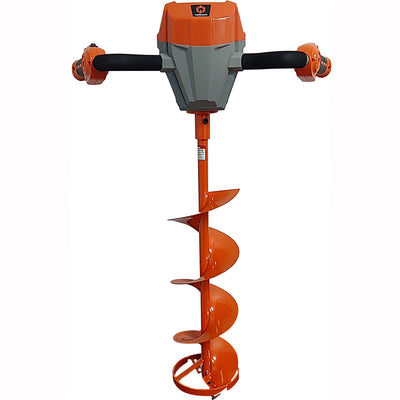How To Make Eco-Friendly Changes for a Greener Lawn
Eco-friendly changes in lawn care is becoming more popular as people strive to be more environmentally conscious.
Making your lawn more eco-friendly doesn't mean you have to give up your green grass. There are changes you can do that will help to positively impact the environment.
Here are some tips for creating a greener lawn:
Collecting Rainwater
One of the eco-friendly changes for watering your lawn is to collect rainwater. This can be done by setting up a rain barrel or similar container to catch rainwater runoff from your roof. This saves water, but it also helps reduce your water bill. Plus, plants love rainwater. Collecting rainwater is a great way to be more eco-friendly and save money simultaneously. Give it a try next time it rains!
Robot Mower
 Robot mowers are a great option for reducing their environmental impact. These mowers use lithium-ion batteries instead of gasoline, making them much more efficient and eco-friendly. Plus, they're quiet, so you won't disturb your neighbors while mowing.
Robot mowers are a great option for reducing their environmental impact. These mowers use lithium-ion batteries instead of gasoline, making them much more efficient and eco-friendly. Plus, they're quiet, so you won't disturb your neighbors while mowing.
Start a Compost Pile
Composting is a great way to reduce waste and provide plant nutrients. It's easy to start, and you can compost various items, including food scraps and yard waste. Plus, it's a great waImagy to be more eco-friendly.
Here's how to begin:
- Choose a slightly sunny spot in the yard for the compost pile.
- Mix both garden and food scraps.
- Make sure your compost pile is a little moist.
- Provide a cover using a tarp.
Add an Organic Mulch
 Organic mulch adds nutrients to your soil and helps your plants thrive. Plus, it's an eco-friendly lawn care alternative to traditional mulches. Here are some tips for adding organic mulch to your garden.
Organic mulch adds nutrients to your soil and helps your plants thrive. Plus, it's an eco-friendly lawn care alternative to traditional mulches. Here are some tips for adding organic mulch to your garden.
- Choose the right mulch. There are a variety of organic mulches available, so be sure to choose one that's right for your plants.
- Apply mulch around the base of your plants. Be sure to avoid the stem and leaves to prevent disease.
- Add a two to three inches layer of mulch to help retain moisture and prevent weed growth.
Plant Groundcover
The grass itself can be detrimental to ecosystems. Over time, it homogenizes the environment and decreases biodiversity. Plus, grass requires various resources to stay intact. Instead of grass, try planting groundcover plants. Groundcover is a low-growing range of plants that cover the ground. They are great alternatives to grass because they don't require as much water or mowing. There are a variety of groundcovers to choose from, so be sure to select one that's right for your climate and soil type.
Decorate with Useful Materials
There are ways you can decorate a yard in an eco-friendly way. Here are some ideas:
- Add rocks or stones. Rocks and stones are a great way to add a personal touch to your garden.
- Install a stone birdbath. A stone birdbath is a beautiful addition to any garden. Plus, it provides a place for birds to drink and bathe.
- Install awnings in a warm climate to reduce cooling costs by 50%.
Create a Rain Garden
Having a rain garden helps with drainage issues, but it's also a great way to provide a habitat for small wildlife. It is easy to construct and can be done in any size or shape to fit your needs. You'll just need to choose the right plants for the job - typically, native plants are best since they're already adapted to your local conditions.
If you're not sure where to start, plenty of resources are available online and in gardening stores. Once you have what you need, it's simply following some basic instructions to build your rain garden. In no time, you'll have an eco-friendly solution to your lawn drainage problems - and you may even find that you enjoy spending time in your new garden.
Avoid Fertilizers and Herbicides
You should avoid using fertilizers and herbicides when possible. They have harmful chemicals that can damage the soil in your yard. This can have many negative consequences down the line, so it's best just to use compost and natural herbicides instead.
Install a Sprinkler System
If you're looking for a way to water your lawn while reducing waste, consider using an optimized sprinkler system. Sprinkler systems can be configured to deliver the exact amount of water that your lawn needs, and you can set a timer so that the sprinklers only operate when necessary. You can save water and money, and it's more eco-friendly than watering your lawn by hand.
You have plenty of eco-friendly changes that will make your lawn care routine more sustainable. By making just a few simple changes, you can have a beautiful lawn that's also eco-friendly.






